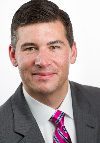Ben Baran, Ph.D.

Ben Baran, Ph.D.
What are your greatest memories of OS?
The people—both faculty members and students—and the vibrant intellectual community that emerges on a continual bases from those relationships. The culture of the program has developed into one that truly rewards, supports, and expects scholarly activity, curiosity, and the practical application of science.
In reflecting back, what are the top three things you are taking away from the program?
- A holistic appreciation for how organizations work from multiple disciplinary perspectives, which has helped me develop good research questions and provide better solutions in consulting situations.
- A host of in-progress research projects and ongoing collaborative relationships with faculty members and others, which have helped me launch my career with ongoing productivity.
- A well-rounded socialization to the academic life, which made for a smooth transition into my current work.
What advice do you have for new students on how to succeed in graduate school?
- Go hard or go home. To be blunt, if you really want to succeed while getting your Ph.D. and set yourself up for future success, you need to work very hard. To make that enjoyable—which is, thank goodness, entirely possible—focus your efforts on those areas that interest you and/or involve people with whom you work effectively.
- Focus on what’s important. That means you need to keep your eye on the prize—expend most of your effort on activities that directly support degree completion and making you attractive to future employers.
- Build relationships with both your fellow classmates and with faculty members. Both the academic and practice sides of OS are surprisingly small worlds, and investing time in those social connections is crucial. This will help you professionally down the road, and it will help you deal with the many stressors of your doctoral journey. It’s tough to succeed if you act like you’re an island—so try not to be a loner. Socialize with each other, go to conferences, and get active in local professional groups.
What job search tips do you have for current students?
- For those seeking academic jobs, know the professional associations for your academic discipline and get active in them (e.g., Academy of Management). Those associations typically guide much of the hiring processes—or at least the first steps—within academic disciplines.
- Keep in mind that your chances of finding jobs to which you’d like to apply are obviously best if you are open geographically. Also be aware of the wide variance in types of academic institutions in terms of size, research-to-teaching balance, tenure expectations, etc.
What about for preparation for going on the job market?
- If you want an academic job, you must have publications. Getting research published can take a long time, so get started in your first year.
- Learn the process for your academic discipline. Start by talking with current faculty members. Then, keep learning on your own. Also try to learn about the subtle aspects of job applicants that may make you more attractive to employers. For example, some business schools like for their professors to have at least some non-academic experience.
- You also need to be able to convince people with whom you’ll be interviewing that you’re actually going to finish your degree. Therefore, it’s best to have at least successfully defended your dissertation proposal prior to interviewing.
- When you apply and interview, do so with a keen understanding of the university to which you’re applying. Know about their mission, their various institutes and centers, and common interests between you and their current faculty members. Prepare good questions to ask during your interviews.
- Understand that being on the academic job market can feel like a second fulltime job. It’s draining and time consuming. So plan accordingly and be prepared.